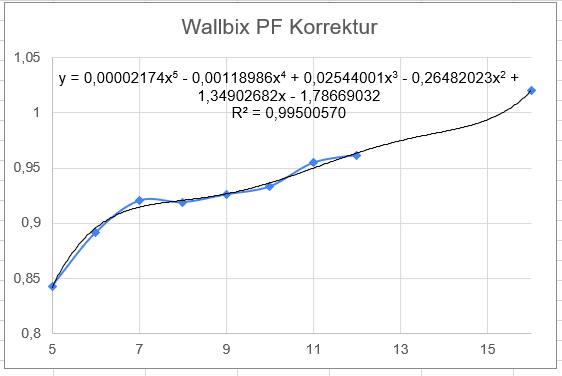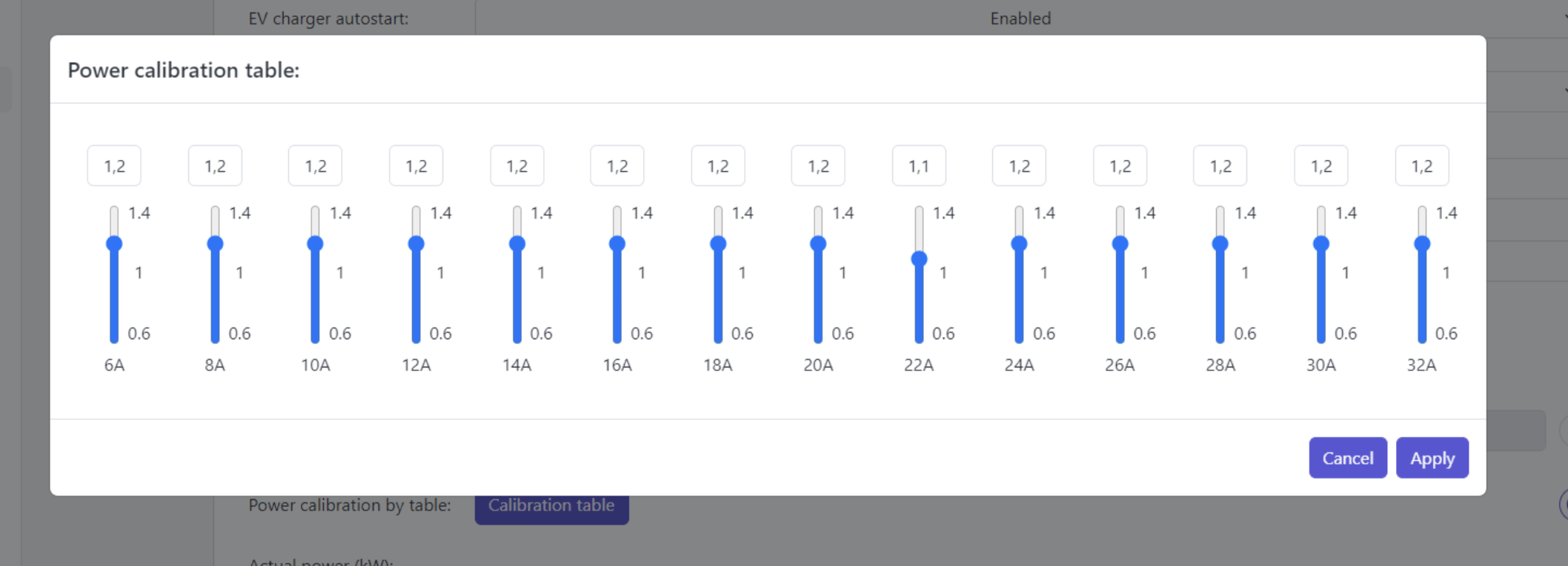Dear All / Dear Victron Team,
I´m using a the EVCS NS in ver.1.26 in combination with a ESS System v3.10-27.
I know that the EVCS is not a pure measurement deveice but i have do modify the calibration factor from 0,8422 / 5A ; 0,895 / 6A ... up to 1,023 / 16A.
The measurement was done with a shelly 3EM meter.
Is this normal?
Have anyone else this issue?
Regards Christian



